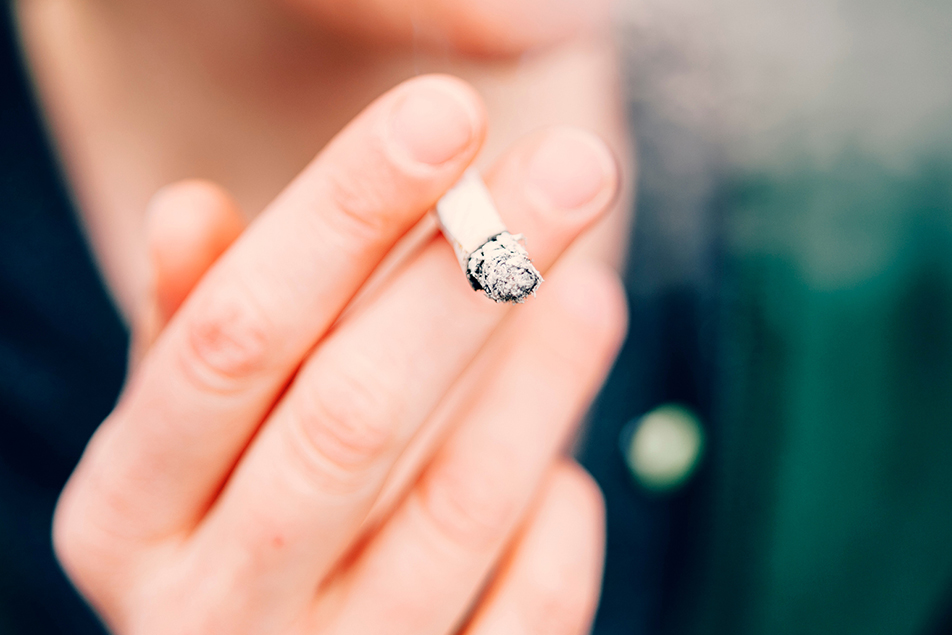
This post was written by Jan Moore, community respiratory educator and care navigator, Parkview Health.
Tobacco use kills more than 8 million people globally each year and negatively impacts the lung health of countless others. While the science behind the coronavirus is still evolving, the limited evidence available shows that smoking worsens outcomes for COVID-19 patients.
Tobacco use and comorbidities
Tobacco use in any form is detrimental to your health. It’s a known risk factor for many respiratory infections and increases the severity of respiratory diseases. Tobacco use is also causally linked to diseases of nearly all organs of the body. Most comorbidities associated with severe COVID-19 cases are linked to tobacco use and can include the following:
- Chronic lung disease; moderate to severe asthma
- Serious heart conditions
- Compromised/suppressed immune system
- Diabetes
- Chronic kidney disease
- Liver disease
System-wide side effects
Did you know that tobacco smoking is a substantial risk factor for bacterial and viral infections, including influenza? In 2019-2020, 92% of individuals hospitalized with influenza had an underlying condition associated with tobacco use.
But why? This is because tobacco smoke causes system-wide inflammation pushing your body into a stress-like response, dysregulating the immune system and reducing its effectiveness. Smoking and tobacco use weaken your immune system by making it less responsive to white blood cells. The nicotine found in tobacco products suppresses the production of antibodies thus lowering antibody counts while reducing your body’s responsiveness to vaccines.
Smoking and COVID-19
Tobacco use may increase the risk and suffering of serious symptoms due to COVID-19 illness. Early research indicates that, compared to non-smokers, a history of smoking may substantially increase the chance of adverse health outcomes for COVID-19 patients including being admitted to intensive care, requiring mechanical ventilation and suffering severe health consequences.
A review of studies by public health experts convened by the World Health Organization (WHO) in April 2020 found that smokers are more likely to develop severe disease with COVID-19, compared to non-smokers. Previous studies have shown that smokers are twice more likely than non-smokers to contract influenza and have more severe symptoms. Individuals who smoked were also noted to have 2-4 times higher mortality from influenza. And, because smoking is detrimental to the immune system and its responsiveness to infections, smokers are more vulnerable to other infectious diseases.
Tobacco smokers may also be more vulnerable to contracting COVID-19, as the act of smoking involves contact of fingers (and possibly contaminated cigarettes) with the lips, which increases the possibility of transmission of viruses from hand to mouth. Smoking water pipes, also known as shisha or hookah, often involves the sharing of mouthpieces and hoses, which could facilitate the transmission of the COVID-19 virus in communal and social settings. Using smokeless tobacco often involves some hand to mouth contact as well. Another risk associated with smokeless tobacco products, like chewing tobacco, can result in the spread of the virus when the user spits out excess saliva produced during chewing.
Quitting
Considering the well-established risks associated with tobacco use and second-hand smoke exposure, the World Health Organization (WHO) recommends that tobacco users stop using and quit completely. Quitting will help your lungs and heart to work better from the moment of cessation. Within 20 minutes of quitting, an elevated heart rate and your blood pressure drop. After 12 hours, the carbon monoxide level in the bloodstream lowers to normal. Within 2-12 weeks, circulation improves and lung function increases. After 1-9 months, coughing and shortness of breath decrease. Quitting also helps to protect smokers’ loved ones, family members, especially children and women, from exposure to second-hand smoke.
Cessation classes
Ready to make a change? Freedom from Smoking classes will be held virtually starting on July 13 from 1-3pm and a second session will kick off on August 5 from 5-7pm. Both classes will run for 7 weeks and are free to all participants. For more information or to register, please call the Parkview Center for Healthy Living at 260-266-6500.




